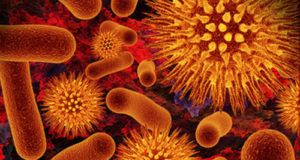The ultimate goal is to prevent men from developing prostate cancer. Although significant progress has been made and genetic and environmental risk factors for prostate cancer have been identified, the evidence is not strong enough for conclusive recommendations.
Studies with finasteride and dutasteride, which are typically used to treat men with the noncancerous condition BPH, have shown that these drugs may reduce the chances that a man will be diagnosed with prostate cancer. The Prostate Cancer Prevention Trial was one of the largest prostate cancer trials ever and involved more than 18,000 men followed for over a decade. This study showed that finasteride therapy reduced the risk that a man would be diagnosed with prostate cancer by 25%. The study did find a slightly higher rate of aggressive prostate cancers in men who took finasteride, which other studies have suggested may be due to artifact or greater ability to find more aggressive cancers due to a smaller gland size (ie a biopsy needle can more easily hit a cancer in a smaller gland than a larger gland). Given that this agent is well tolerated, current recommendations call for a discussion about the risks and benefits of these agents in the prevention of prostate cancer, for treatment of other conditions, such as BPH.
Diet and lifestyle modifications have also been shown to reduce the risk of prostate cancer development and progression, and can help men with prostate cancer live longer and better lives.
More information about how dietary and lifestyle changes can be incorporated into everyday life can be found in the Nutrition, Exercise and Prostate Cancer guide.
Top 10 Considerations for Preventing Prostate Cancer
To understand how to prevent prostate cancer, one must first understand what causes it. There are four major factors that influence one’s risk for developing prostate cancer.
Age: The average age at diagnosis of prostate cancer in the United States is 69 years and after that age the chance of developing prostate cancer becomes more common than any other cancer in men or women.
Race: African Americans are more likely to develop prostate cancer and have more than twice the risk of dying from it. Conversely, Asian men who live in Asia have the lowest risk; however when they migrate to the west, their risk increases.
Family history: A man with a father or brother who developed prostate cancer has a twofold-increased risk for developing it. This risk is further increased if the cancer was diagnosed at a younger age (less than 55 years of age) or affected three or more family members.
Where you live: The risk of developing prostate cancer for men who live in rural China is 2% and for men in the United States is 17%. When Chinese men move to the western culture, their risk increases substantially; men who live north of 40 degrees latitude (north of Philadelphia, Columbus, Ohio, and Provo, Utah) have the highest risk for dying from prostate cancer of any men in the United States – this effect appears to be mediated by inadequate sunlight during three months of the year which reduces vitamin D levels.
The factors above are difficult or impossible to change, however, there are many things that men can do to reduce or delay their risk of developing prostate cancer. Why is prostate cancer so common in the Western culture and much less so in Asia, and why when Asian men migrate to western countries the risk of prostate cancer increases over time? We believe the major risk factor is diet – foods that produce oxidative damage to DNA. What can you do about it to prevent or delay the onset of the disease?
- Eat fewer calories or exercise more so that you maintain a healthy weight.
- Try to keep the amount of fat you get from red meat and dairy products to a minimum.
- Watch your calcium intake. Do not take supplemental doses far above the recommended daily allowance. Some calcium is OK, but avoid taking more than 1,500 mg of calcium a day.
- Eat more fish – evidence from several studies suggest that fish can help protect against prostate cancer because they have “good fat” particularly omega-3 fatty acids. Avoid trans fatty acids (found in margarine).
- Try to incorporate cooked tomatoes that are cooked with olive oil, which has also been shown to be beneficial, and cruciferous vegetables (like broccoli and cauliflower) into many of your weekly meals. Soy and green tea are also potential dietary components that may be helpful.
- Avoid smoking for many reasons. Drink alcohol in moderation, if at all.
- Seek medical treatment for stress, high blood pressure, high cholesterol, and depression. Treating these conditions may save your life and will improve your survivorship with prostate cancer
- What about supplements? Avoid over-supplementation with megavitamins. Too many vitamins, especially folate, may “fuel the cancer”, and while a multivitamin is not likely to be harmful, if you follow a healthy diet with lots of fruits, vegetables, whole grains, fish, and healthy oils you likely do not even need a multivitamin.
- Relax and enjoy life. Reducing stress in the workplace and home will improve your survivorship and lead to a longer, happier life.
- Finally, eating all of the broccoli in the world does not take away your risk of having prostate cancer right now. If you are age 50 or over, if you are age 40 or over and African-American or have a family history of prostate cancer, you need more than a good diet can guarantee. You should consider a yearly rectal examination and PSA test, and you should discuss the risks and benefits of these screening procedures with your doctor.
 Vitamin Agent The Health & Naturalistic Source
Vitamin Agent The Health & Naturalistic Source





